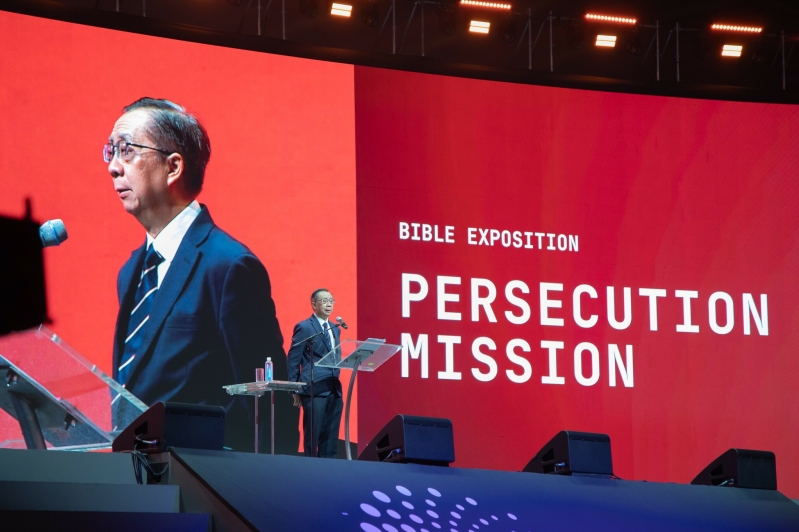
Patrick Fung, the global ambassador of OMF International reminded delegates at the Fourth Lausanne Congress on World Evangelization (Lausanne 4) in Incheon, Korea, that God used and still uses suffering and persecution to reach the unreached.
Referencing the book of Acts chapter 11, Fung illustrated how the great persecution sent believers out of Jerusalem to far flung places such as Phoenicia, Cyrene, Cyprus and Antioch telling both Jews and gentiles about the “good news about the Lord Jesus.”
He argued that God has used persecution repeatedly as a means of growing the Church. “For persecution never kills the church, but a compromised gospel will,” observed Fung.
Fung’s view is an encouragement to millions of Christians living in hostile environments in Africa and beyond. According to Open Door’s World Watch List 2024, over 317 million Christians face very high or extreme levels of persecution and discrimination. 4,998 Christians were killed in 2023, 82% from Nigeria which remains the deadliest place to follow Jesus.
Fung noted that, just like the first church, it is unnamed, unknown Christians on the run who will carry the gospel to unforeseen and unplanned territories.
“These are named disciples, certainly face uncertainty in an instability, and yet they were on fire for the gospel. Basically, they gossip (about) the gospel wherever they went. And so here is a gospel movement by God's people, the unnamed, unknown, and the uncelebrated ordinary disciples. Thus, a mission movement without borders was started by these unknown people of the early church,” he said.
Quoting the Bible scholar, Michael Green, Fung told the delegates that the early church movement did not grow through master plans, charismatic leaders or fantastic strategies, “but by unnamed committed, radical, fearless disciples of Jesus.”
The courage, noted Fung, was first demonstrated by Peter and John who were “unschooled, ordinary men” defied the Sanhedrin and vowed to continue to preach in the name of the Lord Jesus. (Acts 4:19). The disciples in Acts 4:29 asked God for great boldness and healing in miraculous ways.
“Similarly, today, as the church faces opposition or even persecution of various kinds, may we seek the sovereign Lord that his word will continue to be declared and his mercy be displayed to bring healing to a broken world,” he said.
He reminded the delegates that the memory of the 20 Egyptian Coptic Christians and a Ghanaian that were beheaded by ISIS militants in 2015 still lives on the minds of many people.
“The world will never forget the image of those 21 men dressed in distinctive orange jumpsuits along a beach in Libya,” said Fung. “There is one crucial element of what is now recognized as the martyrdom of the 21, the faithful, peaceful, and resilient utterance of the Lord's name from their lips as they have waited for imminent death. This declaration of their faith has led to a revival of courage and a confirmation of what it means to witness as a Christian around the world.”
Fung’s grounded argument confirms the recent happenings across Africa’s Sahel region, a vast area traversing 10 countries from Eritrea and Sudan in East Africa to Mauritania and Mali in the West. Despite the expansion of Islamic terror groups and numerous political coups, anecdotal evidence shows Christians in this hostile region are holding on to their faith and the gospel is spreading.
Yet persecution in many parts of the world has been taking different shapes and forms, as Fung acknowledged. “In the majority world, legislation and societal shifts have resulted in restrictions on religious expression and practice, challenging the church to respond with wisdom and engagement.”





